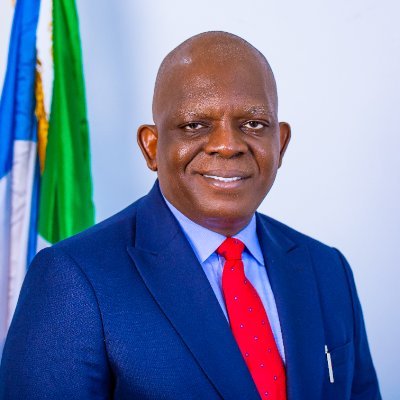The Nigerian Shippers’ Council (NCS) has allayed importers and clearing agents’ fear over the implementation of the 1 percent freight stabilisation fee.
Speaking to LEADERSHIP, the executive secretary of the council, Dr Pius Akutah, who said the benefits of the one freight stabilisation fee, outweigh the cost, stated that the implementation will not amount to additional cost of doing business at the seaports.
According to Dr Akutah, non-implementation of the one per cent stabilisation fee over the years, has led to the Council grappling for funds to run its activities.
“We have done an analysis of the cost benefits of implementing the one per cent, and the benefits far outweigh the cost that it brings into the sector. So we know that since it is a provision of the law, we have no choice but to implement it. So in this 2025 budget, we have that as a stream of income for the Council, so that the Council can be better positioned, especially even when it becomes the Nigerian Economic and Regulatory Agency.
“Because we are looking at having strong regulations that will impact on the economic policies of the President to drive trade facilitation in this sector and grow the economy from this sector, as it has been the case, as we witnessed in 2024.
“What I’m saying is that we are all aware that that provision is already in the existing law, and the law is in force, so we cannot continue to pick and choose what provisions of the law to implement. Besides, we know that the new law that is coming on board, we know that it is going to effectively chart a new course for the sector and promote efficiency that we have all been yearning for,” he pointed out.
The NSC boss, however, stated that the council now has three streams of income which includes, Port development levy, freight stabilisation fee and the Cargo Tracking Note.
“Our budget is based on three streams of revenue. One of it is the normal port development levy, which comes to us at the end of every quarter, which is grossly inadequate to run the activities of the Council.
“We are now projecting the International Cargo Tracking Note, which like I said earlier on, the Honorable Minister of Marine and Blue Economy, Adeboye Oyetola, has been pushing forward for the implementation. Every stakeholder is yearning for the implementation of the ICTN because of the economic value it will bring to the country in terms of revenue generation and also the security of cargo that comes into the country.
“All of these factors necessitate all of the efforts that the minister is doing to ensure the implementation of that international cargo tracking note. And then, the one per cent freight fee, which we talk about. So these would be three major streams of income that will come to the Council in 2025 if the budget is actually approved by the National Assembly eventually,” he stated.
